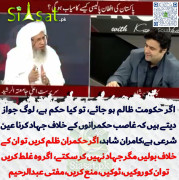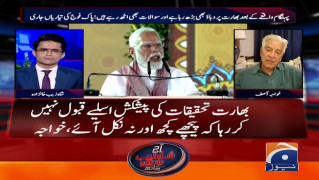jigrot
Minister (2k+ posts)
Even if India were to win a war with Pakistan, the consequences would still make India the bigger loser, particularly because both nations possess nuclear weapons.
Here's why:
Nuclear Escalation Risk: Both India and Pakistan have nuclear arsenals. A conventional war could quickly escalate into a nuclear conflict, with devastating consequences for both countries. Even if India wins, the threat of nuclear retaliation or an accidental launch could result in massive loss of life and long-term environmental damage, impacting India more due to its larger population.
Economic Devastation: War, especially involving nuclear weapons, would cripple India’s economy. Infrastructure would be destroyed, international trade would be disrupted, and foreign investments would dry up. The economic recovery would take decades, far longer than the effects of a military victory, which could cause India to lose its standing as a global economic leader.
Human and Social Costs: India, with its larger population, would bear the brunt of civilian casualties, displacement, and social instability. Rebuilding would be far more challenging than for Pakistan, and the social and political toll would be severe, with internal divisions worsening due to the trauma of war.
Global Repercussions: Even if many countries support India diplomatically, some nations and international organizations may strongly oppose the war, especially if there’s a risk of nuclear escalation. This could lead to sanctions, trade restrictions, or strained relations with key partners, ultimately harming India’s global image and slowing its rise as a peaceful economic power.
In conclusion, even if India were to win militarily, the long-term costs of a nuclear war, economic collapse, human suffering, and global isolation would make it the bigger loser in a conflict with Pakistan.
Here's why:
Nuclear Escalation Risk: Both India and Pakistan have nuclear arsenals. A conventional war could quickly escalate into a nuclear conflict, with devastating consequences for both countries. Even if India wins, the threat of nuclear retaliation or an accidental launch could result in massive loss of life and long-term environmental damage, impacting India more due to its larger population.
Economic Devastation: War, especially involving nuclear weapons, would cripple India’s economy. Infrastructure would be destroyed, international trade would be disrupted, and foreign investments would dry up. The economic recovery would take decades, far longer than the effects of a military victory, which could cause India to lose its standing as a global economic leader.
Human and Social Costs: India, with its larger population, would bear the brunt of civilian casualties, displacement, and social instability. Rebuilding would be far more challenging than for Pakistan, and the social and political toll would be severe, with internal divisions worsening due to the trauma of war.
Global Repercussions: Even if many countries support India diplomatically, some nations and international organizations may strongly oppose the war, especially if there’s a risk of nuclear escalation. This could lead to sanctions, trade restrictions, or strained relations with key partners, ultimately harming India’s global image and slowing its rise as a peaceful economic power.
In conclusion, even if India were to win militarily, the long-term costs of a nuclear war, economic collapse, human suffering, and global isolation would make it the bigger loser in a conflict with Pakistan.





























